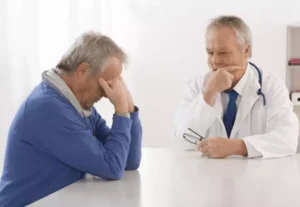
Many people with post traumatic stress disorder (PTSD) experience blackouts, among other symptoms. These blackouts may include flashbacks to a previous time in the person’s life, or they may involve a dissociation from reality. While these experiences may be scary in the moment, you can control and even prevent them with the right treatment plan. In this guide, we will discuss how to handle PTSD blackouts and regain control of your mind and body. Generally, a blackout is described as a period of unconsciousness or lack of awareness when you are unable to recall what happened or what you did. Blackouts may occur as a result of brain damage, drug side effects, excessive alcohol consumption, or disorders affecting brain function, such as epilepsy.
- Anxiety blackout refers to a phenomenon where overwhelming anxiety can lead to a temporary loss of consciousness or memory.
- They may have amnesia, flashbacks, suicidal thoughts, or make suicidal attempts.
- Setting achievable goals in these areas may improve overall mood and lessen the severity and frequency of symptoms.
- During an anxiety blackout, the individual may have difficulty recalling events or experiences during that time, resulting in memory gaps or amnesia.
How can trauma cause brain fog?
You may develop symptoms right after a traumatic event or weeks, months, and even years later. When you develop a time-out plan, you give yourself specific steps to take when you feel anger. Many people with PTSD have found this a great source of relief and an excellent strategy for their relationships. It’s become clear that veterans are at risk for a number of mental health problems, including PTSD and extreme anger.
How Can Anger After a Trauma Become a Problem?

Trauma-focused talk therapy and medication are both helpful in treating PTSD. After surviving a traumatic event, many people have PTSD-like symptoms at first, such as being unable to stop thinking about what’s happened. Fear, anxiety, anger, depression, guilt — all are common reactions to trauma.
Improve Your Sleep

However, the majority of people exposed to trauma do not develop long-term post-traumatic stress disorder. Getting treatment as soon as possible can help prevent PTSD symptoms from getting worse. PTSD is a mental health condition that occurs in some people following a traumatic event, series of events, or the witnessing of an can ptsd cause blackouts event. PTSD may affect a person in various ways, including their mental, physical, social, and spiritual well-being. Managing psychogenic blackouts and anxiety-induced memory loss involves addressing the underlying psychological factors. In some cases, medication may also be prescribed to manage anxiety or related symptoms.


This could mean feeling like you’re in a dream or that time is moving slowly. Another arousal symptom of PTSD is having problems concentrating. Research has found that people with PTSD can have deficits in verbal learning, speed of information processing, attention or working memory, and verbal memory. You may find yourself having trouble focusing, paying attention, or remembering details. People with PTSD often live constantly on edge and, therefore, react to even small stressors with full intensity. Adults who experienced childhood trauma may also feel anger toward what happened to them as children.
- Millions of people in the United States experience sleep troubles ― and that number is staggering in people with PTSD, affecting upwards of 70–90% of people with the condition.
- The disorder is a spectrum, and it covers many other symptoms.
- If a person is experiencing syncope blackouts, a doctor may request an electrocardiogram (EKG) to see whether there are any underlying problems with the heart.
- This is known as an amygdala hijack and can also result in things like flashbacks, nightmares, or being easily startled.
- However, the World Health Organization’s International Classification of Diseases, 11th Revision (ICD-11), does acknowledge the condition, and some clinicians are diagnosing it.
However, the World Health Organization’s International Classification of Diseases, 11th Revision (ICD-11), does acknowledge the condition, and some clinicians are diagnosing it. By following a good sleep hygiene routine, you can improve your sleep and possibly your memory, too. We also know that sleep plays an important role in memory, and good sleep appears to be essential for memory consolidation and processing. Research in 2022 has shown that PTSD can affect memory in two primary ways.
